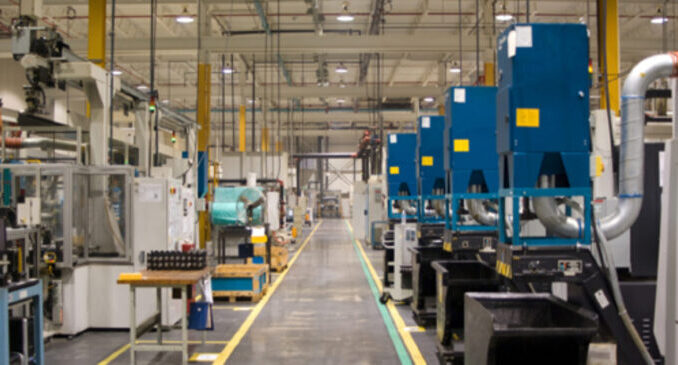
The Manufacturers Association of Nigeria (MAN) says the latest interest rate increase by the Central Bank of Nigeria (CBN) will worsen the imminent recession in the manufacturing sector and negatively impact its operations in many ways.
On Wednesday, the policy-setting committee of the CBN raised the monetary policy rate (MPR) which measures interest rate, from 18 percent to 18.5 percent.
The latest adjustment was the seventh consecutive rise since May 2022.
The monetary policy rate (MPR) is the baseline interest rate in an economy, every other interest rate used within an economy is built on it.
Reacting in a statement on Thursday, Segun Ajayi-Kadir, director-general of MAN, said the MPR hike would, among other challenges, lead to an increase in the cost of borrowing which would further discourage investments in the sector.
Ajayi-Kabir said it would also lead to a high cost of production which would lead to higher commodity prices and inventory of unsold manufactured products.
“It is evident that the continuous and consistent increase in MPR is not yielding the desired growth in the economy. The Nigerian economy remains fragile and bedeviled with numerous challenges that inhibit growth,” the statement reads in part.
“Therefore, the monetary authority needs to pay closer attention to rethink the policy mix, bearing in mind the parlous state of the economy, especially the effect of a high MPR on the manufacturing sector and the economy.
“The increase in MPR from 18 per cent to 18.5 percent will certainly lead to an increase in lending rates and worsen the uncompetitiveness of the manufacturing sector.
“The Association has been clamoring for single-digit lending rates to allow manufacturers access needed funds to boost the performance of the sector.
“This increase, like the previous ones, is evidence that the CBN is either unperturbed about the plight of the productive sector or is unable to fathom out a more creative policy mix that would reflate the sector.
“Therefore, it is necessary for government to think outside the conventional monetary policy framework and take pragmatic steps to quell the inflationary pressure and reposition the economy.”
END

Be the first to comment